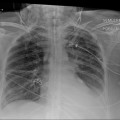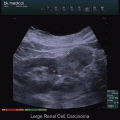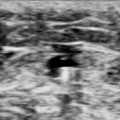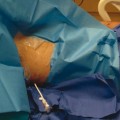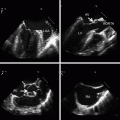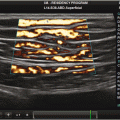Requirements
Fellowship pathway
Practice experience pathway
Current license to practice medicine
Required
Current medical board certification
Certified or eligible
Specific training/experience in critical care
Fellowship in critical care medicine or 24 months of clinical experience in critical care medicine, with at least 25 % of clinical time dedicated to care of critically ill patients for the last 2 years of practice
Didactics
Curriculum during fellowship training
20 h of continuing medical education, AMAa Category 1 credits or their equivalent; credits should be obtained while acquiring practical experience in critical care ultrasound
Spectrum of pathology
Broad, including main diagnoses within each core application
Examination of special competence
Not required
Table 7.2
Training pathways in advanced critical care echocardiography
Requirements | Fellowship pathway | Practice experience pathway |
|---|---|---|
Current license to practice medicine | Required | |
Current medical board certification | Certified provider | |
Specific training/ experience in critical care | Fellowship in critical care medicine or 24 months of clinical experience in critical care medicine, with at least 25 % of clinical time dedicated to care of critically ill patients for the last 2 years of practice | |
Didactics | Curriculum during fellowship training | 40 h of AMAa Category 1 credits or their equivalent; credits should be obtained while acquiring practical experience in advanced critical care echocardiography |
Spectrum of pathology | Full spectrum of critical care diagnosis | |
Examination of special competence | Required | |
Comprehensive ultrasound training courses for each level of physicians have been conducted by several professional societies. These courses generally consist of a didactic session and a hands-on skill session over a period of one or more days. The American College of Surgeons (ACS) provides an ultrasound education program for surgeons and surgical trainees [8]. A focused ECHO/ICU ultrasound application module introduces fundamental skills including ultrasound-guided central line insertion, thoracic and vascular imaging and focused echocardiography . The SCCM offers basic, advanced and pediatric critical care ultrasound courses. The American College of Chest Physicians (CHEST) has also developed various critical care ultrasonography courses for intensivists [9]. These courses include on-line submission of video clips is required after completion of an internet-based tutorial and hands-on training. The required content of images includes cardiac, thoracic, abdominal and vascular (deep veins) views. Upon successful completion of the course, a certificate of completion program is issued. How satisfactory completion of these courses relates to credentialing remains to be determined [10].
Certification
Certification is the process whereby an external agency recognizes competence in a discipline or set of skills. Often, this agency is a specialty board (e.g., The American Board of Surgery) that sets criteria for certification usually involving an examination. Other agencies that grant certification may not be housed under the domain of the specialty board. For ultrasound, SCCM and the American College of Emergency Physicians (ACEP) do not recommend certification for basic critical care ultrasound (CCUS). However, they do recommend certification for ACCE. At present, there is not an examination and board that addresses ACCE. The National Board of Echocardiography (NBE) does issue certification for intraoperative transesophageal echocardiography. Preliminary discussion has occurred between various critical care societies and the NBE for ACCE certification (personal communication). However, at present, no such certification exists.
Number of Examinations to Attest to Competency
By extrapolating from work on intraoperative and office-based echocardiography, SCCM developed recommendations for ACCE and CCUS examinations to ensure competency. Of course, this is highly provider-dependent. Some practitioners may develop competency well before the recommended targets, others may require additional experience. SCCM recommends interpretations of at least 400 ACCE examinations—200 of which must be personally performed. During the training period, 50 annual examinations should be performed. Table 7.3 provides SCCM’s recommended requirements for competence in CCUS.
Table 7.3
Recommended requirements for competence in critical care ultrasound
Type of Ultrasound | Application | Minimum number interpreted | Minimum number personally performed |
|---|---|---|---|
Diagnostic | Basic critical care echocardiography | 50 | 30 |
Pleural/pulmonary ultrasound | 30 | 20 |
